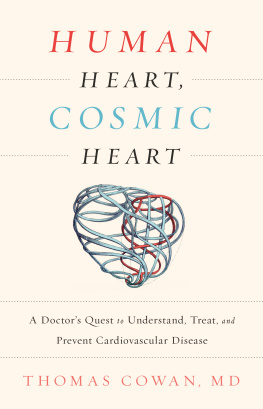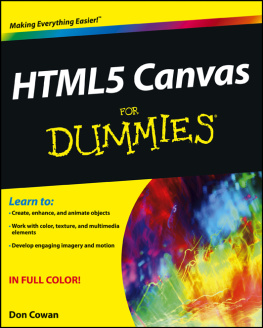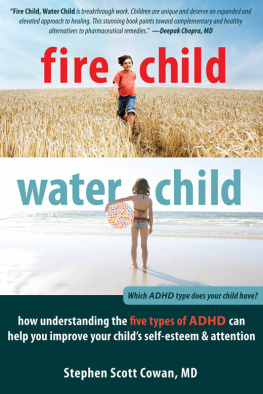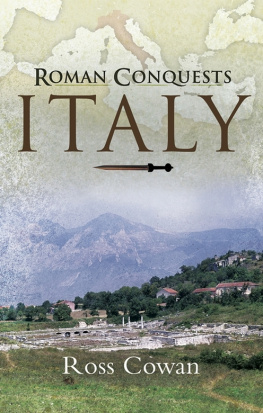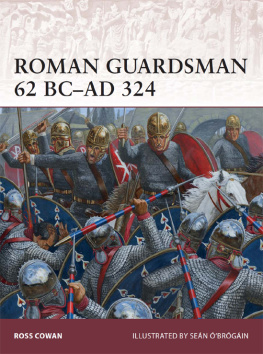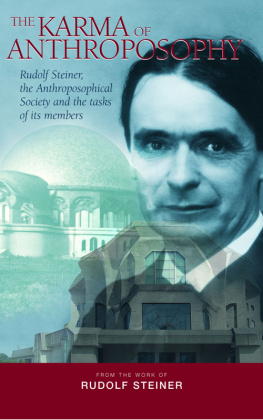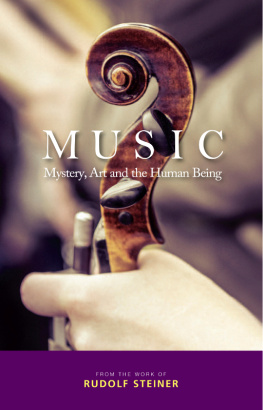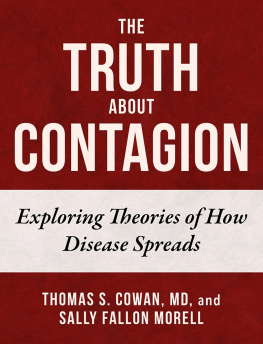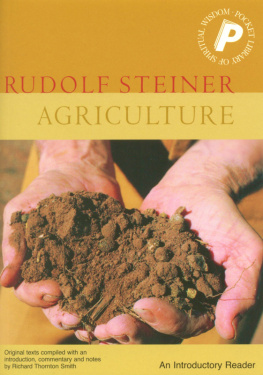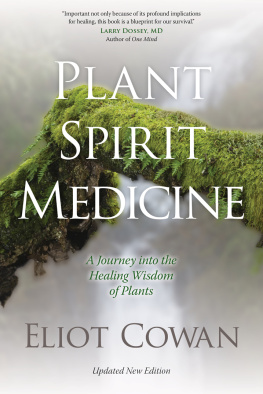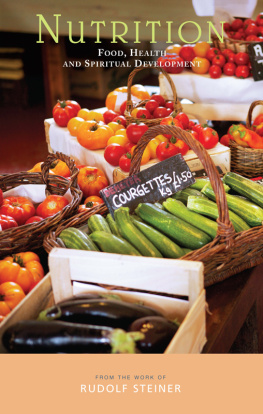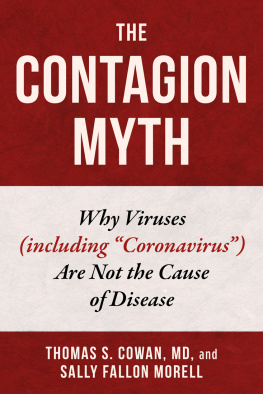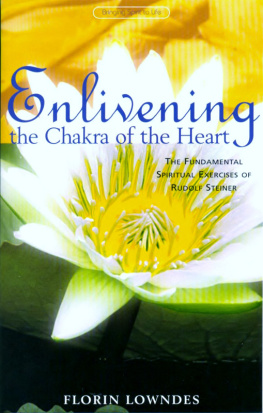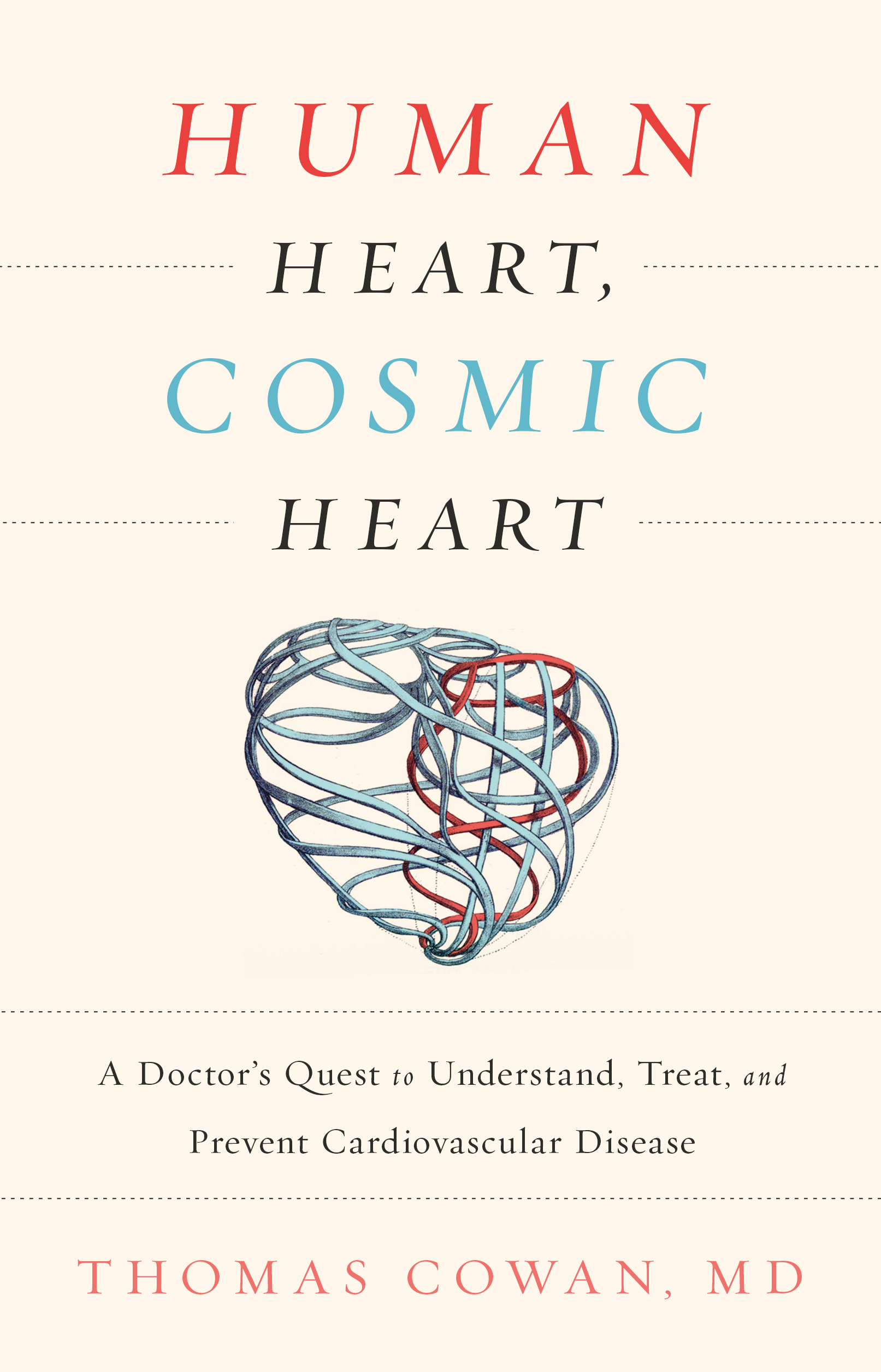Copyright 2016 by Thomas Cowan.
All rights reserved.
No part of this book may be transmitted or reproduced in any form by any means without permission in writing from the publisher.
Project Manager: Angela Boyle
Developmental Editor: Brianne Goodspeed
Copy Editor: Deborah Heimann
Proofreader: Brianne Bardusch
Indexer: Linda Hallinger
Designer: Melissa Jacobson
Page Layout: Abrah Griggs
Printed in the United States of America.
First printing October, 2016.
10 9 8 7 6 5 4 3 2 1 16 17 18 19 20
Our Commitment to Green Publishing
Chelsea Green sees publishing as a tool for cultural change and ecological stewardship. We strive to align our book manufacturing practices with our editorial mission and to reduce the impact of our business enterprise in the environment. We print our books and catalogs on chlorine-free recycled paper, using vegetable-based inks whenever possible. This book may cost slightly more because it was printed on paper that contains recycled fiber, and we hope youll agree that its worth it. Chelsea Green is a member of the Green Press Initiative ( www.greenpressinitiative.org ), a nonprofit coalition of publishers, manufacturers, and authors working to protect the worlds endangered forests and conserve natural resources. Human Heart, Cosmic Heart was printed on paper supplied by Thomson-Shore that contains 100% postconsumer recycled fiber.
Library of Congress Cataloging-in-Publication Data
Names: Cowan, Thomas, 1956- author.
Title: Human heart, cosmic heart : a doctors quest to understand, treat, and prevent cardiovascular disease / Thomas Cowan.
Description: White River Junction, Vermont : Chelsea Green Publishing, [2016] | Includes index.
Identifiers: LCCN 2016026012| ISBN 9781603586191 (pbk.) | ISBN 9781603586207 (ebook)
Subjects: | MESH: Cardiology | Heart Diseases | Philosophy, Medical | Personal Narratives
Classification: LCC RC685.C6 | NLM WG 21 | DDC 616.1/2--dc23
LC record available at https://lccn.loc.gov/201602601
Chelsea Green Publishing
85 North Main Street, Suite 120
White River Junction, VT 05001
(802) 295-6300
www.chelseagreen.com
This book is dedicated to my current (Ben, Sam, Amiya) and future grandchildren with the wish that someday they live in a world fueled by joy, honesty, and freedom.
People may say I am crazy. Perhaps they are right. In this case, it is not so much important if there is one fool more or less in the world. But in case that I am right and science is wrong, Lord have mercy on Mankind.
Viktor Schauberger
Tears come from the heart and not from the brain.
Leonardo Da Vinci
CONTENTS
CHAPTER ONE
Doubting Thomas
I can see myself at sixteen years old, exhausted and slumped on the locker room bench. My teammates have long since showered and gone home. Eventually Coach Callaway sticks his head in and barks, Cant take all day, Cowan! Have to lock up here.
Im not scared, just curious.
With intense basketball practice five days a week, I cant figure out why I never get into shape. Our team was ranked among Michigans top ten, even against the urban schools that regularly sent players to top colleges or occasionally the NBA, and our practices were grueling. Coach Callaway, whose ambitions lay beyond high school coaching, made us run laps if I failed to sink ten consecutive foul shots. Our style, and our strategy, was to run the other team into the ground.
And yet, even long after we finished practice, my heart racesjumping suddenly from 72 beats per minute to 200and I cant do anything about it except wait for it to pass. I never tell anyone, embarrassed about my poor conditioning and worried that I will lose valuable playing time if I let on how tired I feel. Once it calms down, I trudge home through the dark to our house in suburban Detroit.
My earliest clear memory is of hiding in my bedroom closet furious with the world and yet hoping someone (mostly my mother) would come, offer a kind word, and rescue me from my misery. I dont remember what provoked this particular episode, but I do remember that it happened somewhat frequently and that, even from an early age, I liked to play alone and rarely took up the chance to play with other children. I rarely spoke, and when I did, it was with a terrible stutter and speech impediment that prevented me from pronouncing my L s.
When I was six, my worried parents took me to a child psychiatrist, who told them that I just thought a lot and that someday I might decide to share what I was thinking. There were no more visits, there was no therapy, no intervention at allsomething Ive remained profoundly grateful for to this day, especially during patient visits with young children and their concerned parents.
I did have speech therapy at school to correct the impediment, and I stopped stuttering around the time I was seven. My speech teacher commented that I was the only student she had had who successfully, and totally, corrected a speech impediment. It was because, if there was one thing I was good at, it was practicing things to perfection, especially things I could do myself that didnt require me to participate with others. I spent hours in front of the mirror making my tongue do the right movement as I repeated words that began with L .
In this same way, I practiced ad infinitum every other physical skill I was exposed to. By age three, I could catch a ball as high as my father could throw it. Later, I set up a basketball court in my bedroom, wearing the rug down to the wood underneath. I practiced golf for hours, shot hockey pucks into a shoe box for hours, and threw rubber balls against the side of our house into the painted strike zone on the wall for hoursalways by myself and always working on perfecting technique and form. Even as a six-year-old, I could not tolerate a hitch in my throw or improper footwork on a reverse layup. If I couldnt do it, I practiced it until I could. My form and appearance had to be perfect. I needed to master whatever I set my mind to, to take things to their logical conclusions.
This drive for mastery collided with a skepticism that often comes naturally to kids before adulthood outfits us with blinders. As I was memorizing the order of the US presidents backward and forward and reading every story I could about Native peoples and how they lived, I couldnt make sense in my mind of the way American history had unfolded, driven as it so often was, and is, by greed over money, land, possessions, and powerall in the context of liberty and justice for all. And I remember trying to understand, really understand, what the big deal was about gold. I liked food, and I was practical about money, so I didnt get why people cared so much about gold, which you cant even eat, and seemed to have no inherent value, at least that I could fathom. Plenty of things resist degradation and could be used for trade. Why gold? It came early to me that adult explanations often make no sense.
Sometimes teachers called me Doubting Thomas because I had such a hard time accepting authority figures or teachers, especially if the answer to Why? was Because someone said so. But I learned to live in contradictory worlds, to a certain extent, although the contradictions never escaped me. My father and grandfather were dentists, and it was clear to me, although I hated the idea of it, that I was meant to become a doctor. One day, my father had me spend a day with one of his doctor friendsThis is Tommy. He wants to be a doctor one day.when an obese African American patient came in complaining of a chronic cough she couldnt get to go away.

